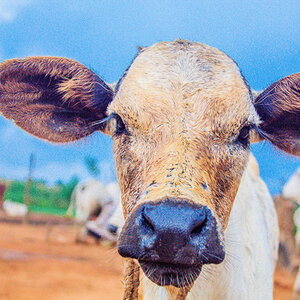Gates Foundation Awards $12 Million to Boost Yam Productivity in West Africa
The International Institute of Tropical Agriculture has announced a five-year, $12 million grant from the Bill & Melinda Gates Foundation in support of a new initiative designed to boost yam productivity and boost incomes for three million smallholder farmers in Ghana and Nigeria.
Led by IITA in collaboration with the governments of Ghana and Nigeria, the UK's Natural Resources Institute, the Alliance for a Green Revolution in Africa, and Catholic Relief Services, the Yam Improvement for Income and Food Security in West Africa project will focus on increasing yields for 200,000 smallholder farmers, ensuring that they have access to affordable pest- and disease-free seed yams, along with storage and handling technologies that can reduce post-harvest loss. Yam breeders also will work to develop and disseminate new, higher-yielding, disease-resistant varieties of the staple crop.
In addition to improving yam yields and output, the initiative aims to enhance market access for smallholder farmers. To that end, private-sector partners will work to advance efforts that link farmers, particularly those in remote areas, to markets where a strong and steady demand for their yams enables them to realize the economic benefits of increased productivity.
For many in West Africa, yams rank above meat as a source of protein, but in recent years crops in the Yam Belt — which extends from Cote D'Ivoire to Nigeria and accounts for more than 90 percent of global production — have shriveled as a result of pests and disease. "Right now, most farmers cultivate yams mainly for household consumption, but if we can increase yields, while also improving marketing conditions, then many of these farmers should be able to earn a steady income from growing yams," said IITA's director general, Dr. Nteranya Sanginga. "Yam prices have been rising in recent years, because there is a strong demand for the crop in Africa, and even in places like Europe and the United States, where rapidly growing West African immigrant communities still have a big appetite for their traditionally preferred staple."







